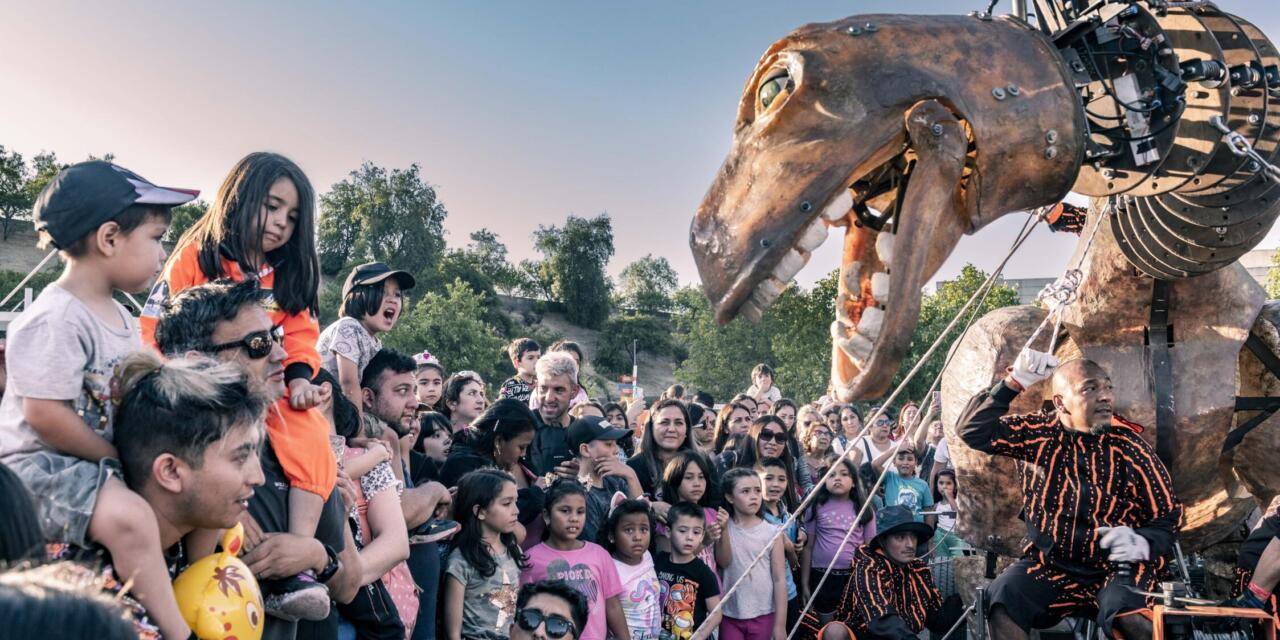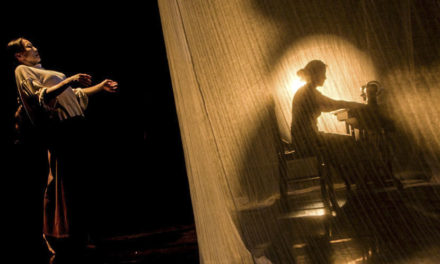- Santiago a Mil is an annual theatre and performing arts festival held in the Chilean capital in summer. Since 1994 it has been welcoming audiences to its programme of activities across the city. The festival is a key producer of work as well as a receiving festival and is run by festival founder Carmen Romero.
- First known as Teatro a Mil, in 2005 it took on a new name, Festival Internacional Santiago a Mil which reflects the presence of a range of multi- and interdisciplinary performance work. The festival sits, since 2004, under the Fundación Teatro a Mil (Teatro a Mil foundation).
- The festival first served as a cultural space for Chilean work. The first international productions were invited in 1996. It is now recognised as a meeting space for practitioners across Latin America, a showcase for work and a development forum for new writing, performance art and devised projects. The 2024 programme saw a strong programme of Chilean work accompanied by work from 16 other countries: Argentina, Austria, Belgium, Bolivia, Brazil, Canada, Colombia, China, France, Germany, Italy, Palestine, Peru, Portugal, Spain, and the UK.
- Santiago a Mil 2024 ran from 3 to 28 January, although some street theatre performances ran until 8 February and the exhibition Museo 31 has been extended until March 2024. Dates for 2025 are still to be confirmed but the festival always takes place in January.
- The festival has a producers’ week (Platea) that brings industry producers and programmers together to see work – much of which has English surtitles. This year 205 figures attended Platea, including 110 programmers from across the globe.
- Santiago a Mil 2024 presented 64 works in indoor spaces, 48 of these were Chilean productions and 7 productions from other Latin American nations — specifically Argentina, Brazil, Colombia and Uruguay. In addition, there were 25 productions which were open air or site specific that offered free admission to all audiences. Six concerts were also presented in Tocatas Mil.
- Santiago a Mil offers an important space for works in progress seeking further coproduction funding and support. 2024 presented six works in progress, including a number by key figures in Chilean theatre including Alfredo Castro, director of one of Chile’s most important theatres, Teatro La Memoria and a figure best known to Anglo audiences for his extraordinary performances in Pablo Larraín’s films and dramatist-director Guillermo Calderón, winner of the best screenplay award for El Conde at the 2023 Venice Film Festival. Castro presented an intelligent adaptation of Alia Trabucco Zerán’s novel Limpia (Clean) and Calderón a staging of a sharp new play about the rise of the right entitled Vaca (Cow). Manuela Infante, another key Chilean writer, presented a segment of her new work Vampyr. The theme of the vampire seems a pertinent trope in contemporary Chilean culture – El Conde, co-written by Calderón with director Pablo Larraín, envisages Pinochet as a vampire still haunting Chile.
- Santiago a Mil provides a number of sessions for embryonic ideas to be pitched. The highlight of the 2024 pitches I saw was choreographer Luciana Acuña of Grupo Krapp’s idea for a piece about dance and danger using the idea of gas lighting in the 19th century setting dancers’ tutus’ on fire. This was a theatrical pitch that embodied risk and beauty and demonstrated the complex ways in which gender politics was played out on- and off-stage.
- Santiago a Mil manages to meld the national and the international in its programming. The strong programme of Chilean work was also accompanied by work from 16 other countries: Argentina, Austria, Belgium, Bolivia, Brazil, Canada, Colombia, China, France, Germany, Italy, Palestine, Peru, Portugal, Spain, and the UK.
- There’s a buzz around the venues and full houses for pretty much all the work I saw. It’s estimated that about 400,000 spectators experienced work at the 2024 festival.
This post was written by the author in their personal capacity.The opinions expressed in this article are the author’s own and do not reflect the view of The Theatre Times, their staff or collaborators.
This post was written by Maria Delgado.
The views expressed here belong to the author and do not necessarily reflect our views and opinions.


















